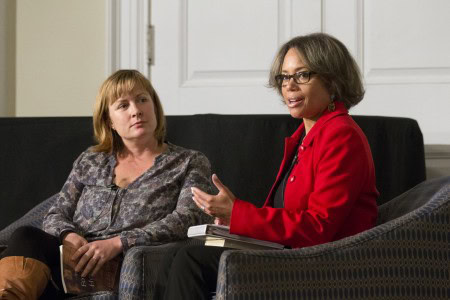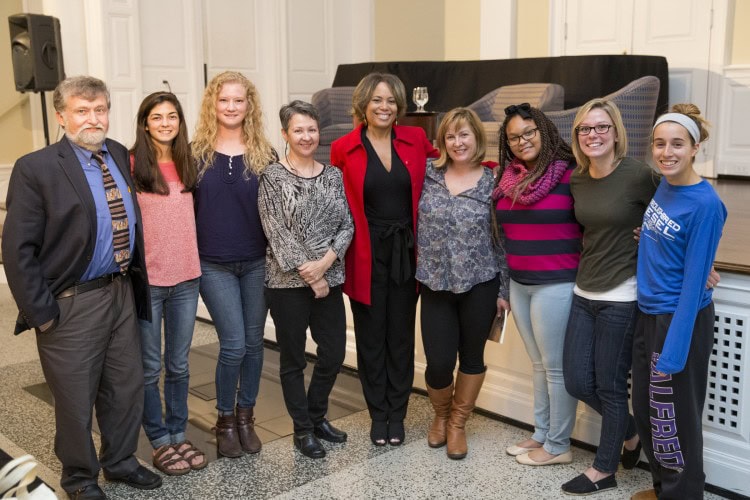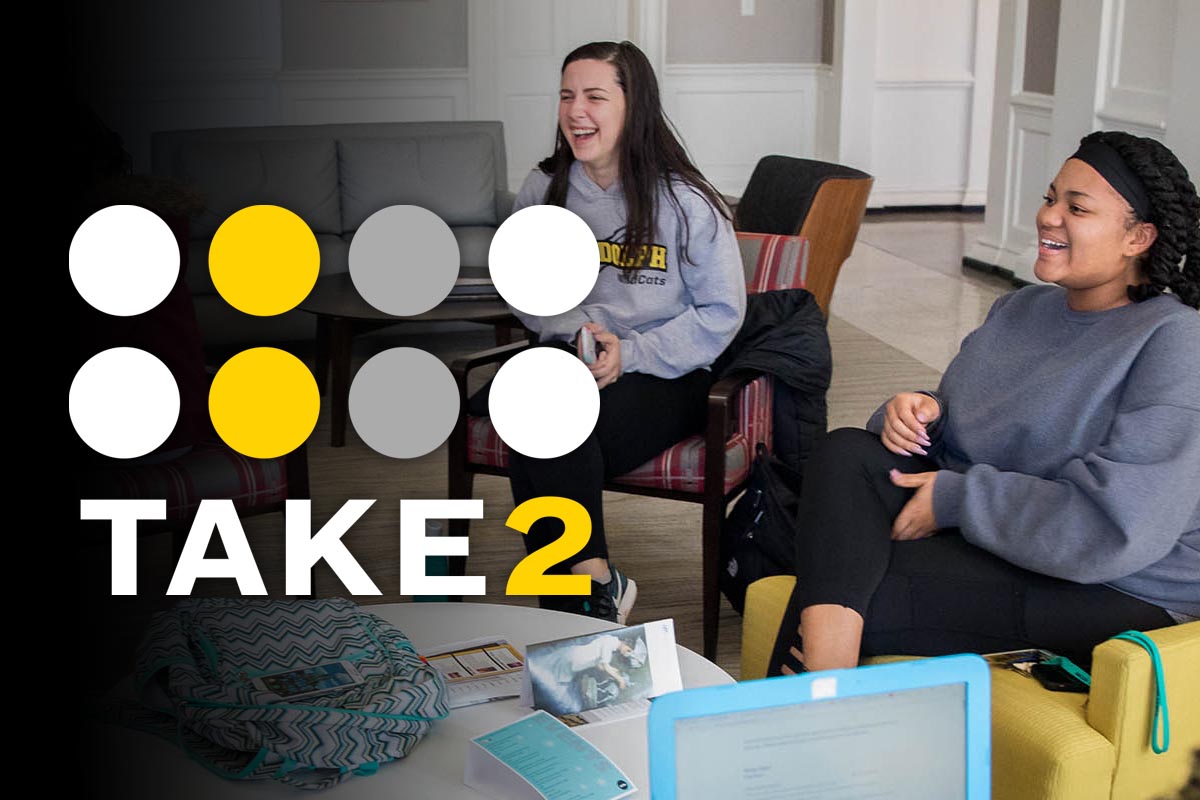Descendants of Thomas Jefferson discuss race relations with Randolph students

Gayle Jessup White (right) and Tess Taylor discuss racial issues in America during Randolph’s Relatives and Strangers program Wednesday.
On Wednesday night, two descendants of U.S. President and Founding Father Thomas Jefferson challenged Randolph students to help improve race relations in America.
The panel discussion was hosted by Randolph College and Thomas Jefferson’s Poplar Forest as part of its formal partnership. The discussion was part of a two-night program featuring cousins Gayle Jessup White, a black writer and historian from Virginia, and author Tess Taylor, a white author from California.
During the discussion, the women shared their family history and how they traced their matching bloodlines. White’s probable great-great grandfather was Moncure Robinson Taylor, Jefferson’s great-great grandson, and Taylor’s great-great grandfather was Moncure Robinson’s brother. White and Taylor found out they were related just a few years ago.
White learned that Jefferson was her great-grandfather five times removed when she was 12 years old and overheard a conversation between her father and sister about the family history.
“When I heard that part of the discussion, I stood silent,” White said. “It was amazing to me because I loved history as a child. To learn that I was connected to the man who wrote the Declaration of Independence was nothing short of miraculous and amazing.”
White has since spent her life researching family history as well as African American history. One of her goals is to honor and remember the lives of her black ancestors as well as other enslaved African Americans who helped build America. Since most were known only by their first names and are buried in unmarked graves, White makes a point to say their names as often as possible.
“Until we identify and recognize African American slaves as individuals, we can’t move forward and recognize African Americans and appreciate their achievements today,” she said. “Not only did black lives matter then, but black lives matter now. That’s why naming them is so important.”
Taylor, meanwhile, always knew she was a descendant of America’s third president. Growing up in Berkley, California, she felt detached from her Virginia heritage, but researching her ancestry for projects in grade school and college piqued her interest. She went on to write about her family history for a college journalism class, and later composed a book of poems called The Forage House, which is about the lack of documentation for the lives of African American slaves.
“For someone who had grown up to be a writer, it was painful to learn about the lives of so many people who did not write because they couldn’t,” Taylor said. “However, poetry is not just about what is present, but also about what is absent.”
John d’Entremont, the Theodore H. Jack Professor of History, moderated the discussion and visited Lynchburg City Cemetery with White earlier that day. D’Entremonte estimated there are 15,000-20,000 African Americans buried in the cemetery, many of whom lie in unmarked graves. He added that prior to the Civil War, Lynchburg’s per capita income was the second-highest of any city in the United States.
“What that means is that the per capita income of the free people of Lynchburg was the second-highest in the country, and the 40 percent black population were part of that income,” he said. “Not only were they part of that money physically because they were considered liquid capital, but they also generated a great deal of that money. And yet those are the people buried in the cemetery without a stone.”
Both White and Taylor encouraged Randolph students to learn more about America’s racial past and to become more engaged in improving race relations for the country’s future.
“You don’t have to reinvent the wheel. Find causes that you believe in and work with them,” White said. “If you’re opposed to guns, find a group and volunteer. If black lives matter to you, join them, because black lives matter to everybody—or should. Get engaged and use the power of the Internet to make a difference.”
Randolph students attending the event said the discussion made them think differently about race relations and the country’s history of slavery. Randolph “I really do think it’s important for us to try and turn strangers into relatives because how can we move forward as a society otherwise?” said Ivy Smith ’16.
Tags: events, history, John d'Entremont, Poplar Forest, Relatives and Strangers

